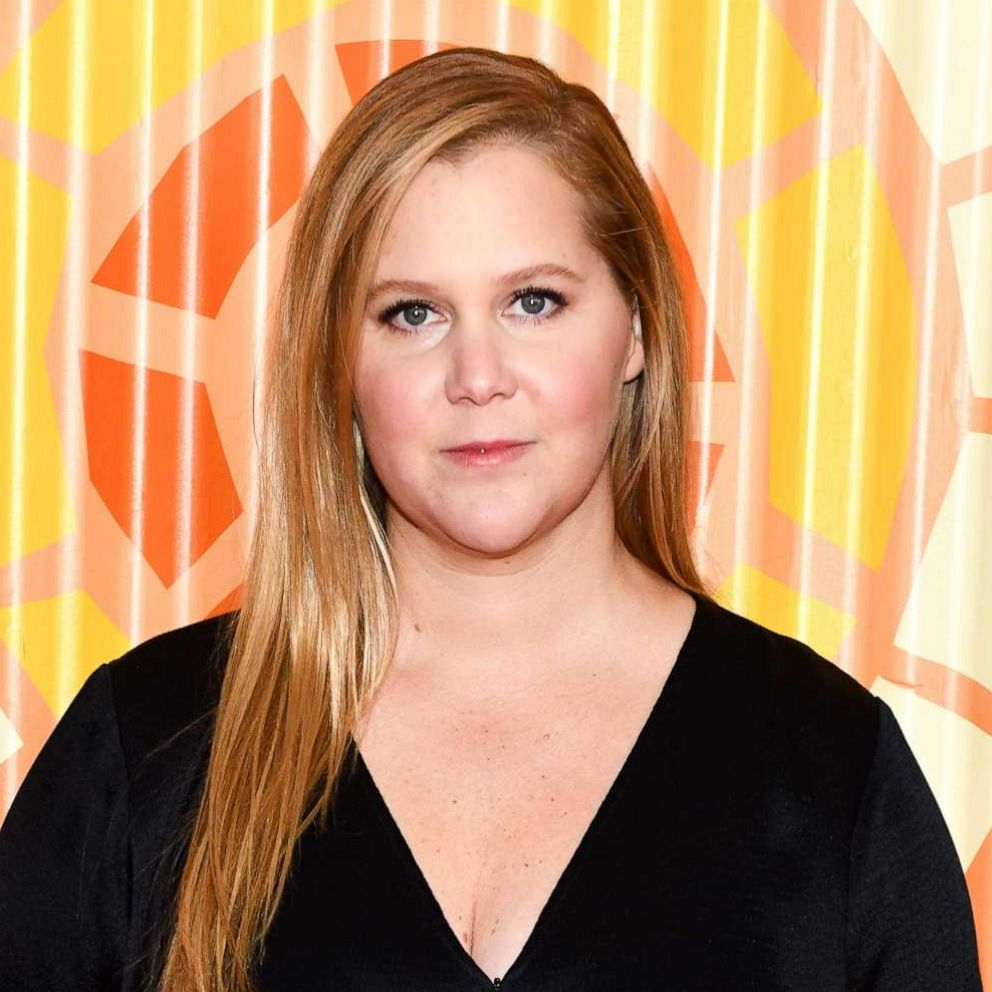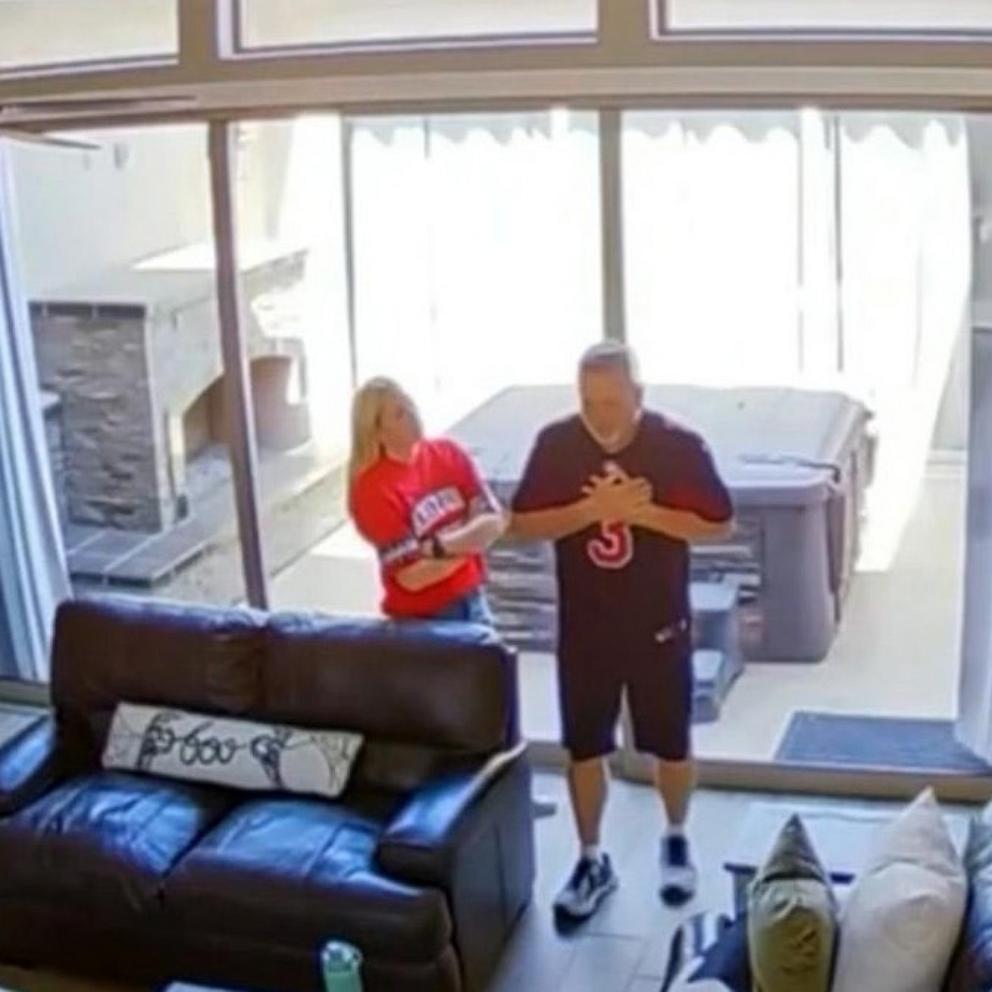I'm a pediatrician and mom: These are the protections I'm taking amid 'tripledemic' of flu, RSV and COVID-19
Dr. Edith Bracho-Sanchez says she knows firsthand the worry that comes with being a parent amid what some health experts are calling a "tripledemic," with high rates of flu, respiratory syncytial virus, or RSV, and COVID-19.
Bracho-Sanchez is a pediatrician at Columbia University in New York and the mother of a 14-month-old son who had to be taken to the hospital earlier this year to be treated for pneumonia after having a viral illness.
"It was really, really scary," Bracho-Sanchez told "Good Morning America" of her son William's illness, from which he eventually recovered. "So in addition to relating to my patients, of course, as their pediatrician, I am relating in this moment as a mom who has had her own child get sick and develop a complication from a viral illness this season."
After a harsh fall season, flu and respiratory illnesses continue to show no signs of slowing down this winter.
Currently, 44 U.S. states as well as New York City, Washington, D.C., and Puerto Rico are reporting "very high" or "high" levels of influenza-like activity, according to Centers for Disease Control and Prevention data released last week.

Pediatric bed occupancy has steadily remained the highest it has been in the last two years; last month, the CDC issued an official health advisory in response to the rise in respiratory infections in children.
The ongoing higher rates of flu, RSV and COVID-19 come at a time when children tend to be indoors more often due to colder weather, and when families tend to be busy with school activities and holiday gatherings.
Bracho-Sanchez said her son attends daycare and they hope to gather with their family for Christmas, so she is taking extra precautions now to help prevent illness.
"As a mom right now, so much feels out of my control," said Bracho-Sanchez. "But I am trying to prevent the things that I can prevent."
Here are six steps Bracho-Sanchez said she is taking to help protect her son's health amid the "tripledemic."
1. Keeping up-to-date on vaccinations: Bracho-Sanchez said her son has been vaccinated against COVID-19 and influenza, which she recommends for all kids ages 6 months and older.
"I have peace of mind knowing that even if he is exposed to either one of those illnesses, he is much less likely to develop severe complications because I have vaccinated him," she said. "I trust the vaccines. They are safe."
Children ages 6 months and older are eligible to get a flu vaccine as well as a COVID-19 vaccine, with "rare exceptions," according to the CDC. Both vaccinations are free and are widely available to doctors' offices and local pharmacies.
Bracho-Sanchez said it is safe for children to get both their flu and COVID-19 vaccine shots at the same time.
She also said it's important for adult caregivers and loved ones of children to also get vaccinated against both the flu and COVID-19.
2. Watching for symptoms: Bracho-Sanchez said it's a reality that most children will develop at least one cold this season, and that most will recover at home and have no lingering complications.
There are times, as Bracho-Sanchez said she experienced, that a child needs additional medical help, so she said she continues to watch for those symptoms in her own son.
Those symptoms include dehydration, a fever that lasts for three days or longer, and a child who is worsening or experiencing respiratory distress, according to Bracho-Sanchez.
"A child who's breathing fast or who looks like they're having trouble breathing, like they're having to work so hard to breathe, that is the sign to go seek help," she said. "And any child who had been getting better at home and all of a sudden seems to worsen, the fevers had gone away and now they come back, or they had been perking up a little bit, and all of a sudden, they really seem like they're not acting like themselves, that is a child that needs to be seen as soon as possible."
3. Limiting indoor gatherings: Bracho-Sanchez said she is limiting the parties and indoor gatherings that she and her husband and son attend to only those that are "really meaningful."
"We want to see family this holiday season. Our family is getting vaccinated, and we're not going to cancel those gatherings," she said. "But perhaps things that are less meaningful to us, we're going to skip this season."
She continued, "We're still going to playgrounds. We're still doing outdoor play dates when we can, when the weather allows it, because he's still a child and it's important for us to live our lives as best we can and prioritize the things that are meaningful to us."
4. Wearing face masks: Bracho-Sanchez said she and her husband continue to wear face masks when in crowded, indoor spaces, even if they are no longer mandatory.
"It does no harm and it can actually bring you some protection," she said of mask wearing in crowded spaces. "Kids over [age] 2 do really, really well with masks if you teach them and if you normalize it for them."
The American Academy of Pediatrics says face masks should not be worn by children under age 2. It recommends face masks be worn by several groups of people, including those over age 2 who have not been vaccinated against COVID-19 and by families with babies under 6 months of age who cannot be vaccinated.
5. Staying home when sick: Bracho-Sanchez said if her son is experiencing cold or flu-like symptoms like a fever or a runny nose or cough, she will keep him home from daycare to help prevent the spread of germs.
"I know so many of us have missed work, have had to cancel other activities when our kids get sick because so many colds are going around," she said. "But as best we can, let's keep them home if they are sick."
6. Washing hands: Bracho-Sanchez said she encourages families, including her own, to continue the good hand-washing habits that so many people developed during the COVID-19 pandemic.
"Hand-washing can absolutely help us prevent COVID-19, influenza, RSV, and so many other things that are circulating right now," she said. "So absolutely keep up the hand-washing, keep up the hand-sanitizing when you don't have access to a sink and let's keep teaching our children and getting them in that habit."







